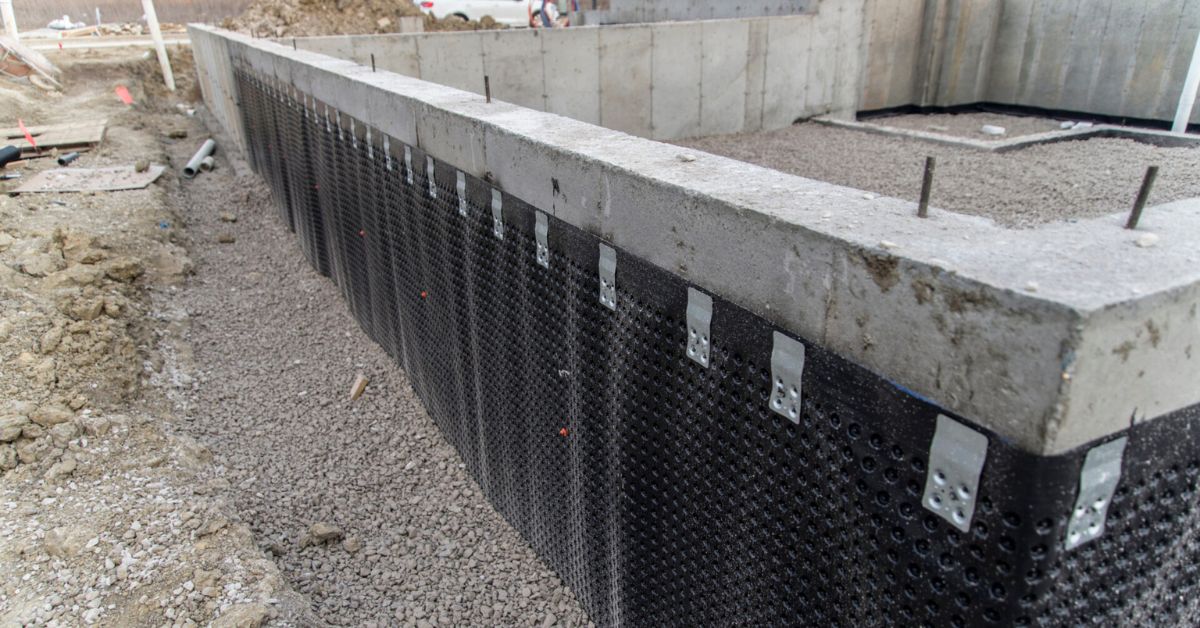How Basement Waterproofing Helps Prevent Mold and Structural Damage

Basements are particularly vulnerable to moisture issues due to their location below ground level. Over time, even small amounts of water infiltration can lead to serious consequences, namely mold growth and structural damage. That’s why basement waterproofing is one of the most important investments a homeowner can make.
If you’re wondering whether waterproofing is really necessary, this article will help you understand how it directly protects both your home’s health and its foundation.
The Mold Problem: What Moisture Leaves Behind
Mold thrives in dark, damp, and humid environments—conditions commonly found in untreated basements. Once mold spores begin to grow, they can quickly spread on walls, floors, ceilings, and even stored belongings.
Health concerns related to mold include:
- Respiratory problems and allergies
- Skin irritation
- Aggravation of asthma symptoms
- Unpleasant odors and poor indoor air quality
What makes mold especially dangerous is that it often starts growing in hidden areas—behind drywall, under carpets, or inside insulation. Waterproofing your basement reduces the moisture levels that mold needs to survive, helping you avoid these risks altogether.
Structural Damage: The Silent Threat
Water doesn’t just promote mold—it can also weaken your home’s structural integrity. Over time, moisture leads to issues like:
- Cracked foundation walls or floors
- Bowing or shifting walls from hydrostatic pressure
- Rotting wood beams or floor joists
- Corrosion of metal components in support structures
These damages may start small but can escalate quickly, resulting in thousands of dollars in repairs or even compromising the safety of your home. By keeping water out, waterproofing prevents long-term deterioration of your basement and foundation.
How Waterproofing Works to Prevent Damage
Professional basement waterproofing involves a combination of techniques designed to stop water from entering the space and to redirect it safely away from the foundation. These methods include:
- Interior drainage systems (like French drains and sump pumps)
- Exterior waterproofing membranes
- Sealants and crack repairs for foundation walls
- Dehumidifiers and ventilation improvements
Each of these elements works together to keep moisture under control, eliminating the conditions mold needs to grow and relieving pressure on your foundation walls.
Long-Term Benefits
Investing in basement waterproofing doesn’t just fix current issues—it also delivers long-term value. Here’s how:
- Improved indoor air quality by reducing mold and mildew
- Preserved the structural integrity of your foundation and walls
- Increased home value and appeal to buyers
- Usable space for storage, living, or recreation
- Peace of mind during rainy seasons or snowmelt
For homeowners in Lancaster and surrounding areas, protecting a home’s lower level from water damage is especially important due to the region’s mix of seasonal rainfall, snow, and clay-rich soil.
That’s why many residents trust basement waterproofing in Lancaster, PA for professional-grade solutions tailored to their property’s specific needs.
Final Thoughts
Basement moisture is more than an inconvenience—it’s a threat to your health and your home’s structure. Waterproofing is a proactive way to prevent both mold infestations and costly foundation damage, offering protection and long-term peace of mind.
If you’ve noticed signs of dampness, water stains, or musty smells, don’t wait. Investing in waterproofing now can save you major headaches (and expenses) down the road.




